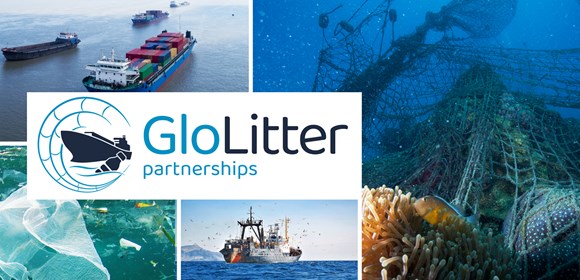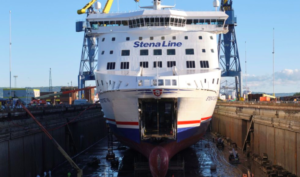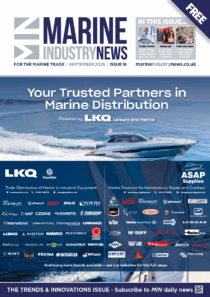30 countries join global initiative to tackle marine litter

An international project designed to help reduce marine plastic litter from maritime transport and fishing sectors is off to a successful start, after 30 countries from five global regions (Asia, Africa, the Caribbean, Latin America and the Pacific) get on board.
The GloLitter Partnerships Project has been implemented by the International Maritime Organization (IMO) and the Food and Agriculture Organization of the United Nations (FAO), with initial funding from the Government of Norway via the Norwegian Agency for Development Cooperation (Norad).
The project aims to help the maritime transport and fishing sectors move towards a low-plastics future. To achieve this goal, this initiative will assist developing countries to apply best practices for prevention, reduction and control of marine plastic litter from those sectors.
Jose Matheickal, Chief, IMO Department for Partnerships and Projects, welcomed the countries on board: “Marine litter is a scourge on the oceans and on the planet. I am delighted that we have 30 countries committed to joining this initiative and working with IMO and FAO to address this growing issue. Their experience and the development of best practices will serve as a model throughout the world and I look forward to seeing results as the project moves ahead.”
“Plastic litter has a devastating impact on marine life and human health,” says Manuel Barange, FAO’s director of fisheries and aquaculture. “This initiative is an important step in tackling the issue and will help protect the ecosystem as well as the livelihoods of those who depend on the ocean.”
Lead and Partnering Countries
Ten countries have been confirmed as Lead Partnering Countries (LPCs) and a further twenty countries have been selected as Partnering Countries (PCs) of the GloLitter Project.
The LPCs will take lead roles in their respective regions to champion national actions in the context of supporting the IMO Action Plan on Marine Litter and the FAO Voluntary Guidelines for the Marking of Fishing Gear. The LPCs and PCs will work together, via a twinning working arrangement, to build regional support for the project.
The ten LPCs are: Brazil, Costa Rica, Cote d’Ivoire, India, Indonesia, Jamaica, Kenya, Madagascar, Nigeria and Vanuatu.
The 20 PCs are: Argentina, Cabo Verde, Columbia, Ecuador, Gambia, Mozambique, Nicaragua, Panama, Peru, Philippines, Senegal, Sri Lanka, Solomon Islands, Sudan, United Republic of Tanzania, Thailand, Timor-Leste, Togo, Tonga and Vietnam.
In the coming months, the Project Coordination Units at IMO and FAO will work with LPCs to develop National Work Plans tailored to the needs of each country, provide necessary technical assistance and training to implement those plans, and facilitate twinning arrangements between LPCs and PCs.
The GloLitter Project will equip the partner countries with knowledge and tools that will include guidance documents, training material and methodologies to help enforce existing regulations. These include IMO’s International Convention for the Prevention of Pollution from Ships (MARPOL) Annex V regulations on the prevention of pollution by garbage, which prohibits the discharge of plastics (including fishing gear) into the sea from ships.
Promoting compliance with relevant FAO instruments and enhancing existing initiatives, such as the Global Ghost Gear Initiative (GGGI), the project will also look at the availability and adequacy of port reception facilities and their connectivity to national waste management systems and develop a “model port waste management plan” including the concept of the circular economy, to be piloted by selected ports from participating countries.
There will also be pilot initiatives, with women-led organisations active in fisheries, to reduce the use of plastic in fisheries, fish processing/marketing, and to collect plastic for recycling.
Materials developed by the project will be made available on the GloLitter webpage.










